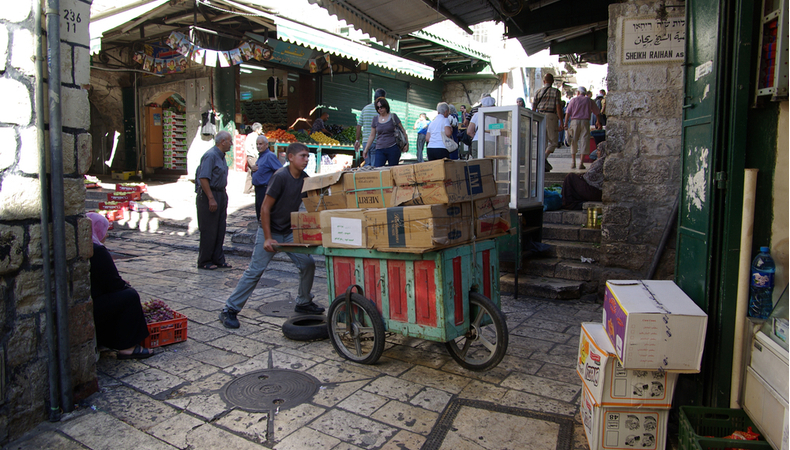Palestinian workers and their suffering at Israeli crossings

Sputnik in Arabic has produced a documentary on the real odyssey that Palestinian workers face every day to go to work in the territories occupied by Israel.Before dawn, the suffering of thousands of Palestinian workers begins and their journey with fear and anxiety in search of a dignified life.142,000 Palestinians work in Israel, and many of them suffer from refusal to grant entry permits. The Israeli soldier or officer at the crossing can tell him there is a problem with his permission, and he has to go to the so-called “civil administration” to go back and spend days trying to figure out the problem.
Mahmoud Qafaf, a Palestinian worker, trying to cross the Al-Taybeh crossing west of Tulkarm, says the crossing time is already a problem in itself. The work in Israel is carried out through various procedures. The search for an employer is the hardest thing to obtain permits and then enter crossings, which take place in stages, curves, “iron” obstacles, narrow corridors that cannot accommodate their vast number. There is barbed wire on both the sides of the gallery with a length of several meters and concrete walls ending with what the workers call “Al Ma’ata,” a circular winding device that forces the worker to pass after the initial examination of his cards.
Then the worker goes to the inspection room. After passing the initial exam, there is the recognition of the fingerprint of the hand and eye, then the physical inspection using a particular machine that makes the worker feel as if it were on the quay. Only at the end of this real odyssey will it be allowed to enter or go back.Najeh Abu al-Wafa, a Palestinian construction worker, says that despite the change at Israeli crossings, it is still a significant obstacle to the movement of thousands of workers.
Wages received by Palestinian workers inside Israel are high compared to working in the West Bank, but working conditions in Israel are the most difficult.After passing the crossing, the Israeli clerk can send him back on the pretext that he arrived late, and the rights they get are much lower than those granted to Israeli workers, both in terms of wages and holidays.
Ahmed Moqbel, waiting for his shift to pass at the Taybeh crossing west of Tulkarm, declares that more than half of the workers in Israeli factories are Palestinians. As a result, they are subject to exploitation in the workplace, as well as discrimination, and also on holidays. Still, with resignation, he says: “We have to go to work, and we endure all this, and we sacrifice ourselves for the sake of our children.”Thousands of Palestinian workers who enter Israel to work without permission suffer doubly, as they are forced to live in terror and fear all the time.
Besides the fact that their journey to work is very arduous and risky, Israeli soldiers can shoot them as soon as they attempt to jump over the separation wall. In addition, they can be arrested, severely beaten, imprisoned, and pay hefty fines, and at best, they can sign pledges not to enter Israel on pain of long-term imprisonment and heavy fines.




